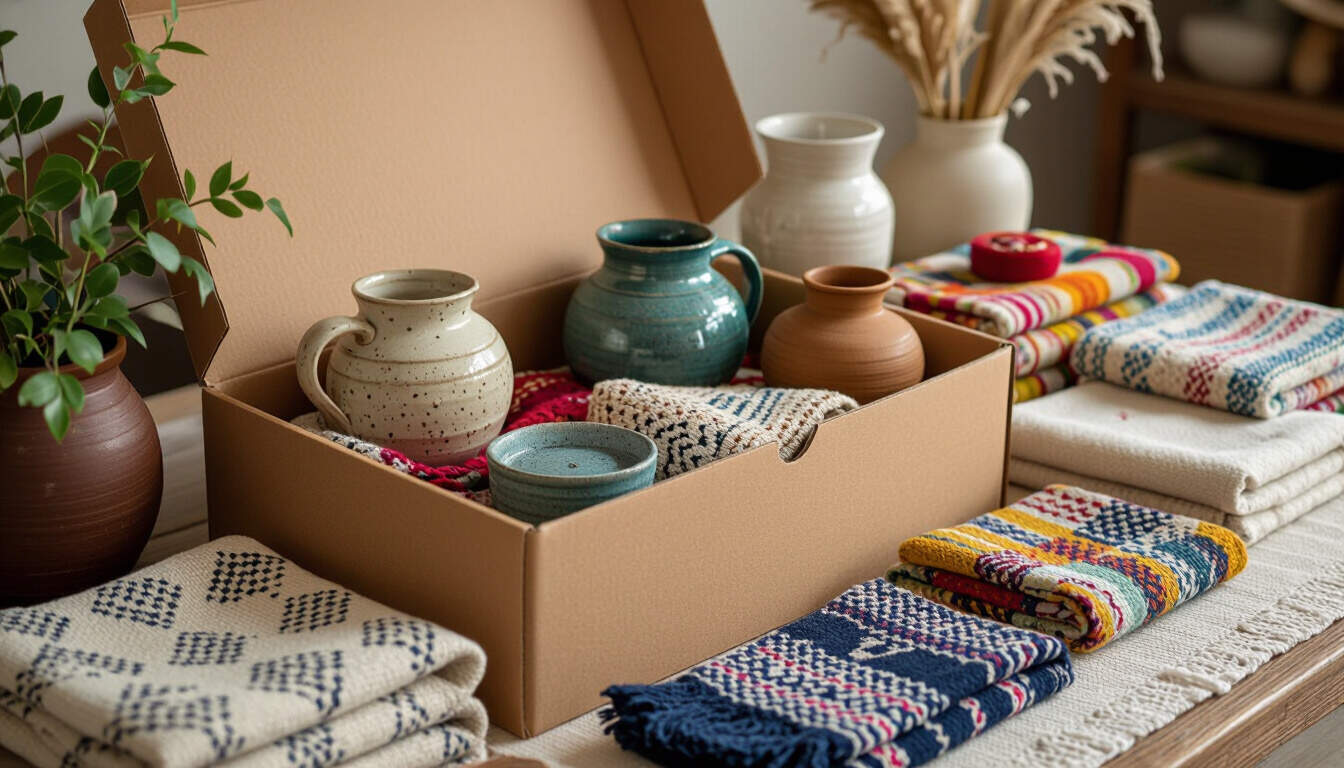Subscription Models for Artisan Products
 by Marlene Keeling
by Marlene Keeling
Discover how subscription-based models can transform the sale of artisan products, offering steady revenue for small businesses and convenience for customers. This approach builds loyalty and ensures a consistent supply of unique, handmade items, making it ideal for e-commerce entrepreneurs.

Subscription models have emerged as a key strategy for selling artisan products. These models allow creators to deliver handmade goods on a regular basis, fostering customer loyalty and providing a predictable income stream.
One major advantage of this approach is the ability to build long-term relationships. For instance, customers receive artisan products monthly, which keeps them engaged and reduces the need for repeated marketing efforts.
In practice, setting up a subscription service involves several steps. First, businesses select items that align with customer preferences, such as handmade soaps or custom jewelry. This ensures each delivery feels personal and valued.
Another benefit is the financial stability it offers. By securing recurring payments, small business owners can plan production more effectively, avoiding the fluctuations often seen in one-time sales.
Benefits for Entrepreneurs
For those in the e-commerce space, subscription models provide a way to scale operations. They can focus on quality and innovation, knowing that a portion of their revenue is steady. This model also gathers valuable data on customer preferences, helping refine product offerings over time.
Customers appreciate the convenience of automatic deliveries. They enjoy discovering new artisan products without the hassle of shopping each time, which can lead to higher satisfaction rates.
Implementation Strategies
To start, entrepreneurs should define their niche. Whether it's organic foods or handcrafted textiles, clarity on product type is essential. Then, choose a suitable platform that supports recurring billing and easy management.
Pricing is another critical factor. Set rates that cover costs while remaining attractive to buyers. Offering tiered options, like basic and premium boxes, can cater to different budgets and increase appeal.
Effective communication plays a role too. Regular updates about upcoming deliveries keep customers informed and excited, enhancing the overall experience.
Challenges and Solutions
Like any business model, challenges exist. One common issue is customer retention. If products don't meet expectations, subscribers may cancel. To counter this, businesses can offer customization options, allowing customers to select items in advance.
Inventory management is also important. Overproduction can lead to waste, while shortages frustrate subscribers. Using simple forecasting tools based on subscription data helps maintain balance.
Adapting to feedback is key. By listening to subscribers, owners can adjust offerings, ensuring the service evolves with customer needs.
Real-World Examples
Consider a small pottery studio that switched to subscriptions. They now send curated sets of mugs and plates quarterly, which has doubled their repeat business. This shift highlights how the model can revitalize traditional crafts.
Another example involves a group of weavers offering seasonal fabrics. Their service provides members with exclusive access, creating a sense of community around their products.
Tips for Success
Start small to test the waters. Launch with a limited number of subscribers and gather feedback before expanding. This minimizes risk and allows for quick adjustments.
Focus on packaging to make each delivery special. High-quality, eco-friendly materials can enhance the unboxing experience, adding value beyond the products themselves.
Finally, track key metrics like churn rate and customer lifetime value. These insights guide decisions and help sustain growth in the long term.
In summary, subscription models for artisan products offer a practical path for small businesses. They provide ongoing engagement and revenue, making them a worthwhile consideration for e-commerce enthusiasts.
